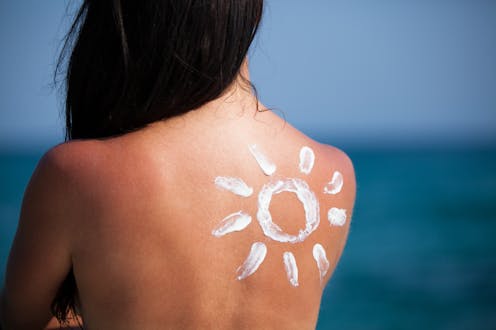80% of all cancers are on the skin. What happens if I have one?
- Written by Katie Lee, PhD Candidate, The University of Queensland

Two in three[1] Australians will have a skin cancer in their lifetime, nearly all of them basal cell carcinomas (BCC), squamous cell carcinomas (SCC) or melanomas.
If the spot removed was more like a sore or lump than a mole, it’s likely your doctor is talking about basal or squamous cell carcinoma, also called keratinocyte cancer or non-melanoma skin cancer. (See our piece on melanomas, which look more like moles, here[2]).
Read more: The doctor says my mole is a melanoma. What happens next?[3]
About 80% of all cancers[4] treated in Australia are skin cancers – most of which are BCCs or SCCs. But because BCCs and SCCs are not notifiable diseases, there is no official tracking system[5] for them.
It’s difficult to know how many are diagnosed each year, but based on Medicare data, there are more than 900,000[6] treatments for BCC and SCC each year – some of these will be separate treatments of the same cancer.
Although they are less likely to be fatal than melanoma (around 560 deaths per year[7] in Australia) the sheer number of them costs more than A$700 million[8] a year to diagnose and treat.
When diagnosed early, BCCs and SCCs are usually straightforward to treat. But don’t be complacent. Left untreated, they will grow wider and deeper, as much as 20cm across[9]. They will invade and destroy surrounding tissue, even bone.
Read more https://theconversation.com/80-of-all-cancers-are-on-the-skin-what-happens-if-i-have-one-182414

















